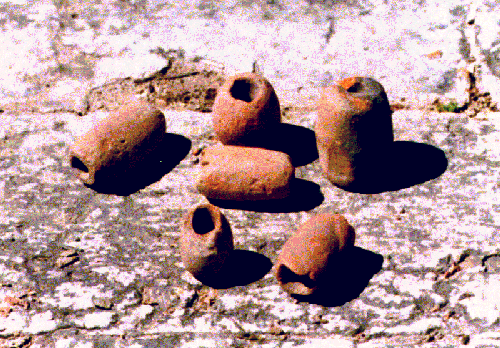|
| Six Weights for Fishing from Setúbal: 1st to 4th centuries AD |

In Roman times, the production of condiments made from fish started in the estuary of the Sado river sometime around the middle of the 1st century AD. There were plenty of fish and salt was easy to mine. These, together with a mild climate, were determining factors for the foundation of this industry.
The industrial complex was made up of auxiliary services such as potters' workshops to supply amphorae, weights for the nets and pottery for day to day use; workshops for the manufacture of nets; salt mines; and farms which supplied food and cloth. These ceramic weights, produced by the potters for the fishermen, are a good example of the inter-relationship of the different parts of the industry.
Nothing is known about the owners of the industrial complex, but in other regions of the Empire family enterprises were common. For example a rich Roman or successful businessman might own a farm, one or several fish condiment factories and a fleet of ships to transport the goods; he might employ one trusted person, perhaps a freed slave, to run each business.
© 1998 Oxfordshire Museum Service, Setúbal Museums and the Benaki Museum